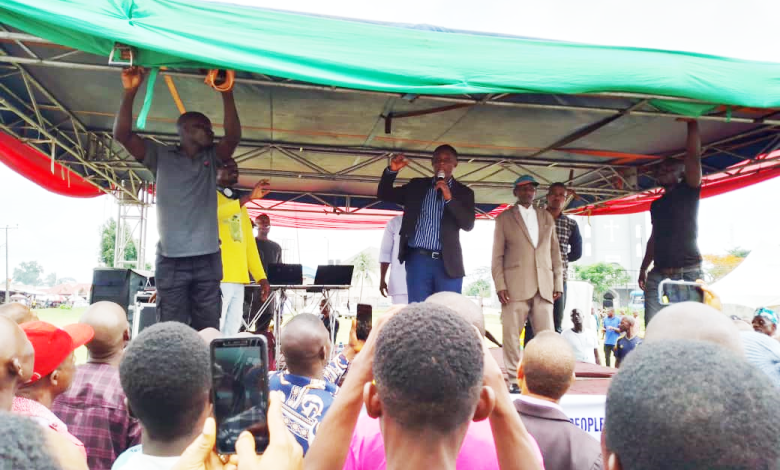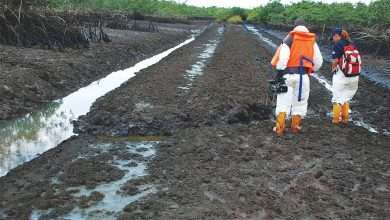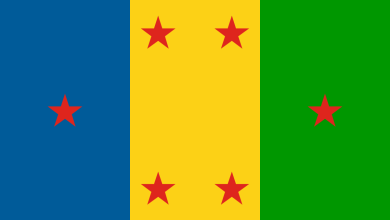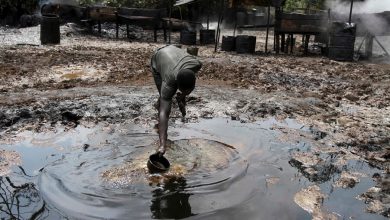How Nigeria’s Poor Handling of the Ogoni Situation Cost Her $279 Billion in 31 Years

By Fegalo Nsuke
The Ogoni people are indigenous inhabitants of the Eastern parts of the Niger Delta in Nigeria. Documented history suggests that the Ogoni have inhabited the region for over 500 years. In what may seem strange, the Ogoni lands are the most naturally endowed when compared to other parts of region occupied by their neighbours, some of whom will claim earlier settlement before the Ogoni people.
Oil was discovered in Ogoni prior to Nigeria’s independence and commercial production by The Shell Petroleum Development Company of Nigeria Limited, SPDC, commenced in 1958. By 1990, crude oil worth an estimated $30 Billion had been extracted from Ogoni. Though this figure has been derived from Shell’s data, recent official and expert opinion suggests that the figure could be twenty times more than the estimates of Shell.
Trouble started for Shell when the Ogoni people realised that there is nothing to show for Shell’s huge revenues generated from Ogoni in over 30 years. Moreover, the Ogoni environment had become obliterated by Shell’s reckless pollution of the lands. It became clear to the Ogoni people that they were going extinct in the midst of huge natural endowments. The Ogoni people had become left to grapple with the disastrous consequences of natural resource extraction while the revenues from its oil and gas resources were injected into building other parts of Nigeria. The Ogoni people were left without basic amenities such as pipe-borne water, electricity, schools, medical care and no economic base to build the future.
In response to these challenges and determined to address these problems, the Ogoni people launched the Movement for the Survival of the Ogoni People (MOSOP} and mandated MOSOP to pursue the cause of justice for the people. Led by late Ken Saro-Wiwa, MOSOP organised and mobilised the people against an obvious genocide and state-backed dehumanisation.
Rather than engage the Ogoni people in a dialogue, the Nigerian government under General Sani Abacha chose an extremely repressive approach, letting loose its military might on a civil population that was only demanding basic rights to decent living.
By 1999, an estimated 4,000 Ogoni people were dead from gunshots, torture, rape, depression and other dehumanising punishments metted by a military force which was stationed in the area. The number of deaths may well have exceeded that figure as some persons remain unaccounted for till date.
To confirm the official endorsement of the Ogoni repression, the Nigerian government did not commission an inquiry into the gross violation of human rights, extra judicial killings, nor has anyone been officially questioned or punished for the Ogoni crimes.
The eventual exit of Shell from Ogoni brought some succour to the people as the pollution and exploitation were halted, at least, for the moment. This temporary triumph opened the door for a new assault on the Ogoni people as the oil industry devised various divide and conquer tactics to resume production in the Ogoni area. Competing oil companies have often sought to exploit the Ogoni people and have not bothered about the need for a dialogue on the demands and expectations of the Ogoni people.
The fact, however, remains that the oil resources in Ogoni wouldnt have been available for competetion but for the sacrifices of Ogoni martyrs and heroes of our struggles – the loss of some 4,000 lives, the pains of the Ogoni people, the rape, torture, state brutality and other forms of dehumanization the Ogoni people had to endure.
The Big Losses
The consequences of Shell’s exit from Ogoni had been a big loss of an estimated $279 Billion in the past 31 years. That conservative estimate represents lost revenue from an estimated 500,000 barrels of oil per day which should have been produced from the Ogoni region. The figure is based on a conservative base price of $50 per barrel. At the current price of $80 per barrel, Nigeria would have lost an estimated $446 Billion.
The Opportunity
The decision of the Steering Committee of MOSOP (also called the Central Committee) which approved the operationalization of the Ogoni Development Authority as the pathway to drive development in Ogoni and address all legacy issues is a golden opportunity for all parties namely the Nigerian government, the oil industry and the Ogoni people.
The Ogoni people insist that because they paid the price for the oil and sacrificed their lives to recover the oilfields from Shell’s reckless behaviour, they have become critical stakeholders in the oil deal. The loss of some 4,000 lives is no mean sacrifice and any company who will contemplate a forceful resumption of production in Ogoni without considering the Ogoni demands, outlined in the document prescribing the operationalization of the Ogoni Development Authority, will be preparing to kill thousands of Ogonis to force its way into Ogoni. That will be genocidal and we will strongly pursue the curse of justice for every soul lost consequently.
The simple and easy way out is that a compromise must be reached on the Ogoni issue, not with greedy people who think the sacrifices of the people will end in their private pockets but by carefully studying the prescriptions of MOSOP and implementing them transparently and in the best interest of the people.
Resolving the Ogoni problem demands that the Nigerian government and the oil industry must be fair in the way the Ogoni people are treated. This fairness is defined as “setting aside a fair proportion of the profits made from natural resource extraction in Ogoni for Ogoni development.”
That prescription is clear and fortunately, MOSOP has provided a detailed documentation setting out the steps required to win the hearts and acceptance of the people. Nigeria must, this time, avoid the poor handling of the Ogoni crisis which led to the unfortunate events of the 1990s and made subsequent resolution a difficult task.
This time, we must take advantage of the opportunity offered by the MOSOP’s initiative. to permanently resolve the problem. It is a suitable prescription we should embrace. It is a fine chance for a peaceful settlement and it is most rational to avoid conflicts when there is an opportunity for a peaceful resolution.
Fegalo Nsuke is President of the Movement for the Survival of the Ogoni People (MOSOP). He wrote from Abuja, Nigeria.




